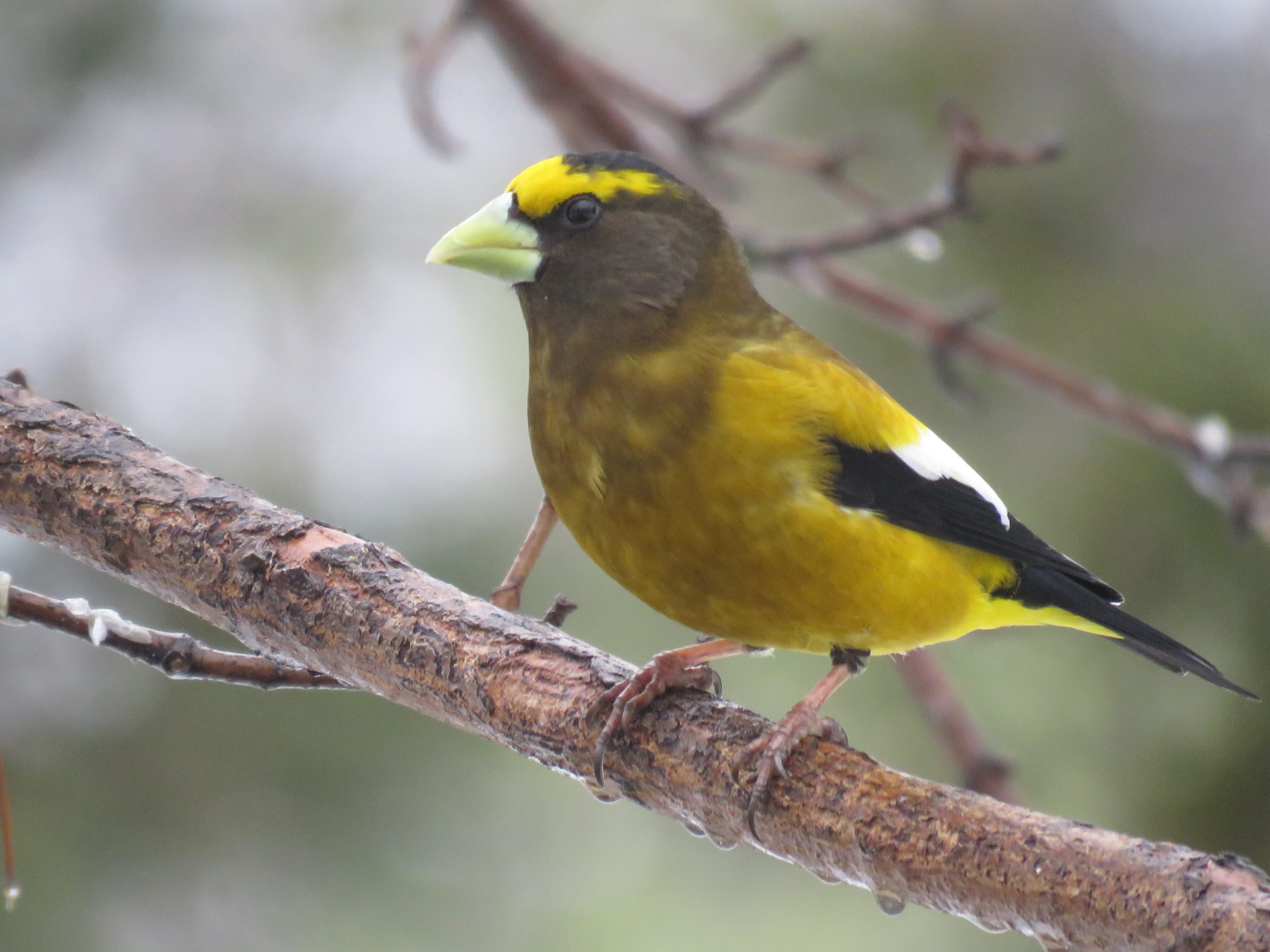 Evening Grosbeaks need your help this Earth Day! Evening Grosbeaks need your help this Earth Day!Hello Finch Fans, It’s been an exciting few months for the Finch Research Network and the Evening Grosbeak Recovery Team. From February through April 2022, members of our team ventured into the field in Minnesota and northern Maine to study Evening Grosbeaks, color-banding 62 birds and deploying 13 satellite tags and 30 nanotags. From the 13 satellite tags we’ve already received over 700 positions transmitted, and a couple birds have moved to New Brunswick in preparation for the upcoming breeding season. All this work is part of the Road to Recovery for the Evening Grosbeak, a species that is rapidly declining. On this Earth Day, we’re asking for your support to continue FiRN’s Road to Recovery effort for this iconic species. https://finchnetwork.org/donate The bold colors and gregarious nature of the Evening Grosbeak (Coccothraustes vespertinus) make it a favorite at winter feeders across North America. Unfortunately, its population has declined by 92% since 1970 – the largest decline of any land bird species in North America (Rosenberg et al. 2016), and we still do not know why this species has been affected so severely. Possible sources of decline include window and car collisions, climate change, management of spruce budworm (Choristoneura fumiferana) outbreaks, and the loss of mature/old-growth mixed/conifer forests in the breeding range. In 2017, ornithologists from the Pennsylvania Natural Heritage Program at the Western Pennsylvania Conservancy (WPC) and Powdermill Avian Research Center at the Carnegie Museum of Natural History (CMNH) initiated the first migratory connectivity and tracking study on Evening Grosbeaks. In order to address its rapid decline, we need additional studies to better understand the Evening Grosbeak’s full annual cycle ecology – breeding, irruptive migration, and wintering – and to identify limiting factors for its population. The above research was further bolstered in 2021 when WPC and CMNH teamed with the Finch Research Network (FiRN) to expand the scope of their Evening Grosbeak project and secured additional resources from the Knobloch Family Foundation through the Road to Recovery bird conservation initiative. Over the next few years, WPC, CMNH, and FiRN will collaborate to create an Evening Grosbeak Working Group focused specifically on developing conservation strategies and needs. The team will also continue to deploy radio nanotags on Evening Grosbeaks, and will integrate new lightweight Argos satellite transmitters into this project. The geographic scale of the project also will grow to include Evening Grosbeak wintering tagging sites across the United States. Even though a large part of this work is conservation science, FiRN will also spearhead outreach around conservation actions by setting up opportunities for additional collaboration, community engagement, education, and virtual communications about Evening Grosbeak conservation. Since we launched FiRN in 2020, the website has had over 2 million visits, we presented more than 25 programs for various bird and nature-oriented groups, and we placed nearly 40 Autonomous Recording Units for the monitoring of Red Crossbill and Evening Grosbeak populations across North America. We also plan to fund additional Evening Grosbeak student research. Learn more about FiRN, a 501(c)(3) non-profit dedicated to the study and conservation of finches and their habitats globally, at our website: finchnetwork.org. Thank you so much for your love of finches and I look forward to your support as we continue to grow the Finch Research Network! Warm Regards, Matthew A. Young Founder & Board President Finch Research Network |

